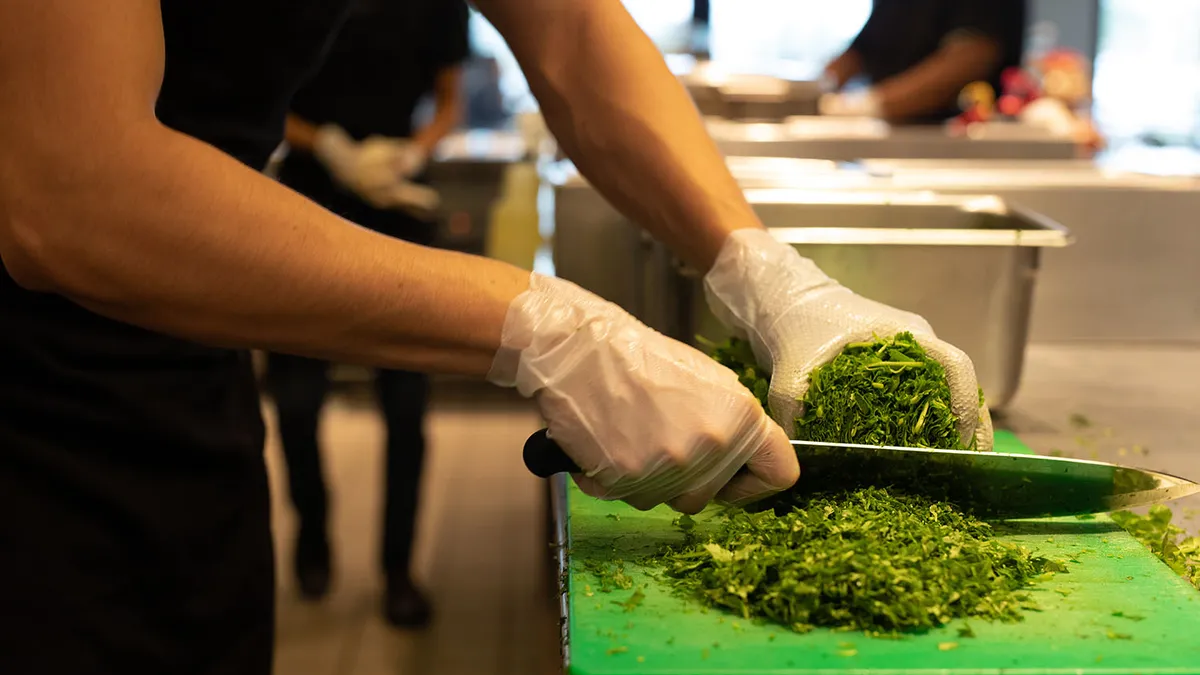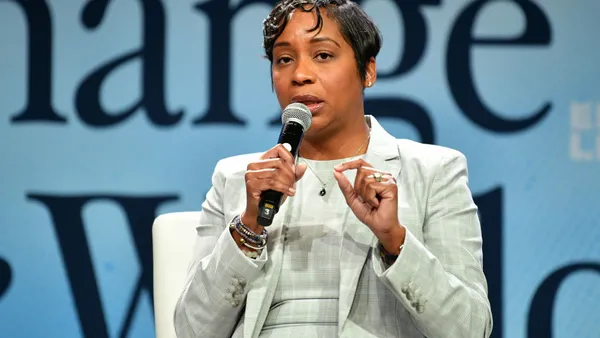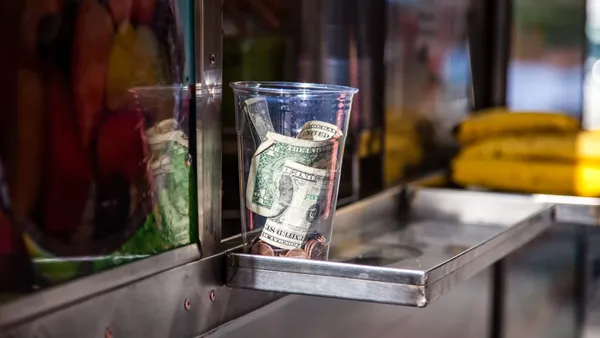Dive Brief:
- New research from Zenput and Technomic emailed to Restaurant Dive shows that while most restaurant operators (82%) believe their stores are performing well on food safety protocols, about one in five stores are considered to be out of compliance with critical food safety protocols or brand standards. Seventy-two percent said the lowest area of compliance was training processes.
- Just 34% of respondents report they are "very confident" that their operation is able to identify potential food safety concerns before they become an issue. This number has fallen from 50% in 2018.
- Further, less than one in four report said they could correct potential food safety concerns within one to two days, while 31% said it takes one to four weeks to make corrections. Thirty-six percent of full-service operators said it takes over a week to address a food safety concern.
Dive Insight:
Operators identified the biggest barrier to consistent food safety execution is the inability to identify issues quickly before they become a bigger issue. And with 89% of restaurant operators agreeing that a food safety issue could put their business at risk, finding solutions to overcome this barrier is critical.
Chipotle is an industry case study of just the leve of risk that comes with food safety incidents. When that company navigated a number of incidents in 2015 and 2017, which sickened hundreds of customers, the chain lost over 60% of its value and faced a number of lawsuits.
Chipotle has since overcome those issues and has regained its value in the process. In doing so, it shut down every restaurant for one day in 2016 to provide a companywide safety briefing, and put all of its 70,000 employees through a new training program in 2017. It also refocused on food safety by adopting a "stage gate process" for product rollouts, which means starting on a small scale before ramping up to a bigger launch.
Better food safety execution can also come by hiring food safety experts, such as a quality assurance manager who can serve as a point person to audit all necessary risks within an operation. It's also important for restaurant operators to follow a certification standard for compliance, to leverage state services that pertain to local food safety regulations, and to seek input from consultants to ensure the FDA's guidelines on food safety are met.
But perhaps the biggest opportunity to close that risk gap is in having more visibility into the supply chain. Certain technologies may be making this easier. Chick-fil-A uses artificial intelligence to help identify potential food safety issues, for example, and the system has yielded nearly 80% accuracy. Also, Chipotle added Zenput's software in 2018 to help monitor food safety compliance and has not had an incident since.
Such technologies are relatively new and likely costly, which may explain why, right now, just 20% of operators use software to improve their visibility. However, 98% of the companies that embrace automation to a great extent report that they are very confident or somewhat confident in their ability to identify food safety concerns before they become an issue, according to the study.
A single foodborne illness can cost a restaurant nearly $2 million. And, in the case of Chipotle, founder and former CEO Steve Ells spent up to $10 million to help smaller suppliers meet new safety standards. These price tags, on top of the massive stock loss and the ensuing lawsuits, not to mention reputational damage, prove such systems may be worth the investment.













